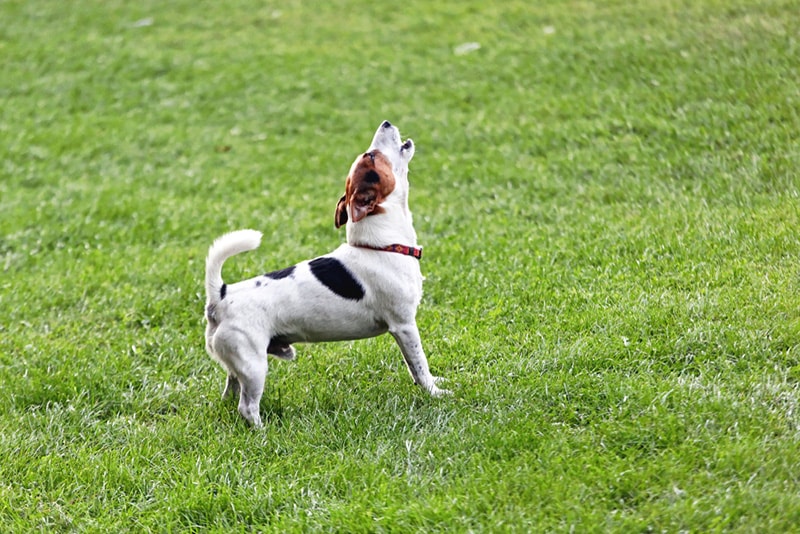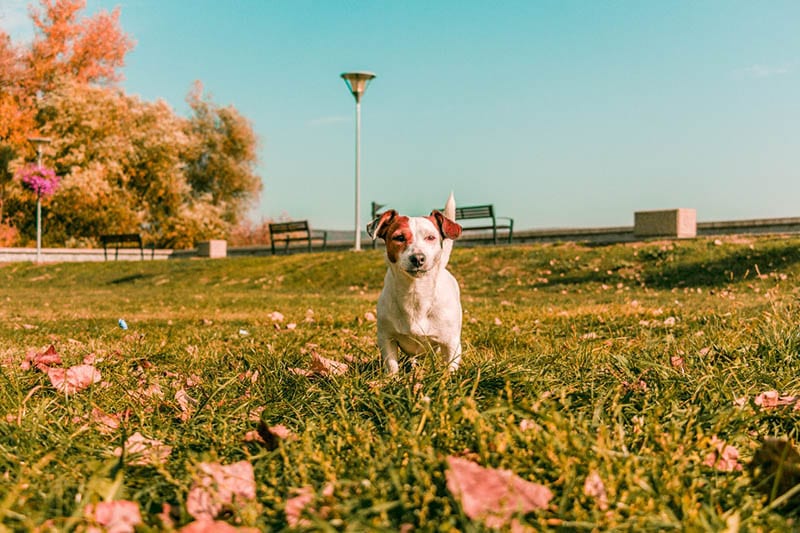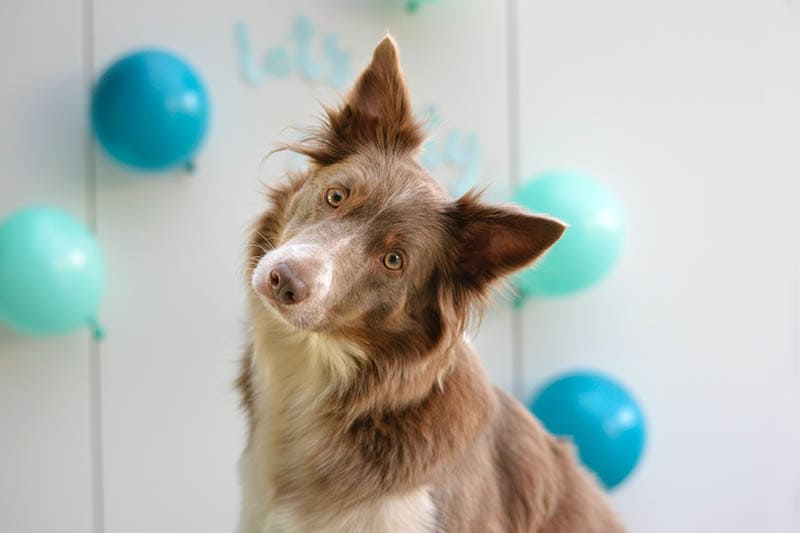Do Jack Russell Terriers Bark a Lot? 4 Ways to Help

Updated on

Jack Russell Terriers have a lot of great qualities, but they are barkers. Jack Russell Terriers can bark a lot, whether it’s to alert you to an intruder, communicate their needs, or at random. These dogs were bred and trained to bark to let a hunter know they found prey—a trait they haven’t let go of, even as companion dogs.
Though it’s to be expected that Jack Russells will bark, there are ways to curb excessive barking and get a more peaceful home.
Why Do Jack Russells Bark a Lot?
Jack Russells are strong-willed, protective, and territorial dogs. They’re bred to hunt and protect, so they instinctively bark when encountering new people or animals.
There are other reasons Jack Russells may bark excessively, however. These dogs are clever and have a lot of energy. They can become bored if you don’t provide sufficient training and outlets for your dog’s liveliness. Bored Jack Russells tend to develop many destructive habits, including excessive barking, chewing, resource guarding, and aggression.

The 4 Ways to Stop a Jack Russell From Barking
The Jack Russell is a vocal hunting breed. Some barking is to be expected. They communicate with their owners and each other using barking, so you don’t want to curb it altogether.
However, you can teach your Jack Russell to bark appropriately and stop on command, which is a good way to curb excessive nuisance barking.
1. Remove Stimulation to Bark
- If your dog barks at people or animals, manage the behavior by putting your dog in another room or closing the curtains.
- If your dog barks to go outside, train them to jingle a bell at the door. You can start by bringing them to the bell and giving them a treat when they touch it. Then, have them ring the bell before they go outside.
2. Ignore the Behavior
If you think your dog is barking to get your attention, the worst thing is to give it to them. Try to ignore the barking to avoid rewarding your dog for demand-barking. You can offer other outlets for your dog’s energy and attention, such as exercise and puzzle toys.
If your dog barks when confined, don’t let them out because they’re barking. Wait until they’ve stopped barking to open the crate door and reward them with a treat. However, it’s important not to leave your dog in the crate for long periods.
Once your dog notices that being quiet gets a reward, lengthen the time they must be quiet before being rewarded.

3. Desensitize Your Dog
If your dog barks at specific triggers, gradually get your dog accustomed to whatever is causing them to bark. Start with whatever causes the bark at a distance. Feed them a lot of treats for maintaining eye contact and not barking. Move a little closer to the stimulus, then offer treats as long as your dog isn’t barking.
If you get too close and your dog begins to bark, move farther away and start the process over.
4. Redirect With Incompatible Behavior
There are some things your dog can’t do while barking, such as lying in bed. Teaching your dog to lie down instead of barking is a good way to curb barking.
When your dog barks at visitors, toss a treat to their bed and tell them to “go to your bed.” When they go to their bed to get a treat, give them praise and open the front door as if you had visitors. If they get up when you open the door, close it again.
Repeat this process until they stay put while you practice opening the door. Continue increasing the difficulty and rewarding them for staying in place by ringing the doorbell, having visitors, etc.

Conclusion
Jack Russells are prone to barking, but it shouldn’t be excessive. If you’re struggling with your Jack Russell’s barking, try these tips to curb nuisance barking and teach your dog when it’s appropriate to bark. If you’re not having luck with training, you may want to consult with a professional dog trainer for help.
Featured Image Credit: Baloncici,Shutterstock











